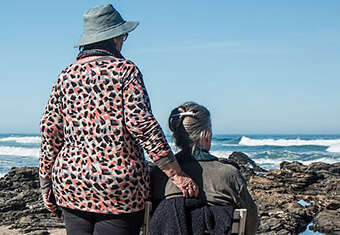An FT article in January 2024 blamed a ‘boom in asset prices’ and an increase in dementia for a surge in inheritance disputes reaching the Courts in England and Wales.

This matched an earlier report, called the UK Inheritance Disputes Report 2022, published by IBB Law. It found that three in four people are likely to experience a will, inheritance, or probate dispute in their lifetime.
So, what causes will disputes, and how do you challenge a will?
Will disputes
Relatives might want to challenge a will for various reasons. They may feel they’ve been treated unfairly or that they’ve not received what they were promised. Often there’s a feeling of being entitled to inherit assets when someone, particularly a parent, dies.
Second marriages can cause will disputes too, when the children of the first marriage feel they’ve been treated less favourably in the will than the children of the second marriage.
There is also increased awareness about financial abuse of the elderly/vulnerable, whether that’s by a relative, friend or carer. Often this leads to will disputes, when family members find they’ve been unexpectedly cut out of someone’s will, in dubious circumstances.
Freedom of disposition
England, Wales and Northern Ireland have ‘freedom of disposition’, which means people are entitled to leave their assets, in their wills, to whoever they want. This compares with other jurisdictions, including Scotland and most European countries, where the law gives close relatives a fixed share of the estate.
The only limit on the English freedom of disposition is something known as the 1975 Act. This allows you to bring a claim against someone’s estate if you were not left ‘reasonable’ provision in the person’s will. This claim is easier if you were married or in a registered partnership with the person who died. It can also be brought by other family members (usually children) or by anyone else who was financially dependent on the deceased.
The position is very different if someone dies without a will, known as being intestate. Here the law divides the estate between the deceased’s close family, prioritising the deceased’s spouse/registered partner and children. Otherwise, parents, siblings and cousins can potentially benefit.
How to challenge a will
There are, however, only a very limited number of grounds for challenging someone’s will and it is harder than you might think. ‘It’s not fair’ isn’t actually grounds for challenging a will.
If a 1975 Act claim isn’t possible, you can challenge a will if you believe that the person who wrote the will (the testator) didn’t have the mental capacity to do so. As the Mental Capacity Act 2005 contains an assumption of mental capacity, if you want to challenge a will on these grounds, you have to prove the testator didn’t have capacity.
An alternative challenge can be brought if the testator was being unduly influenced by someone else. This might be because they’d fallen under the influence of a carer or neighbour. The most common form of undue influence is between spouses and family members.
There are also formalities that a will must comply with, so you can bring a challenge if (for example) you think it wasn’t signed correctly. Again, you’ll have to find evidence to support your case.
You need legal advice on the process for challenging a will and evidence to support your challenge. The costs of a court application can be extremely high, and it can take years to get to court. You should see if you can discuss things between you and whoever is named as heirs in the will. Most will disputes are settled out of court.
How to avoid a challenge to your own will
The best way to avoid challenges to your own will is to a) tell your loved ones what you plan to put in your will, even if you fear it won’t be what they want to hear, and b) get a suitably qualified advisor to write it. Many will disputes arise because the person making the will didn’t let their family know what they were planning to put in their will or drafted their own will incorrectly.
Jo Summers TEP, Partner, Jurit Law
 UK
UK  Canada
Canada
































